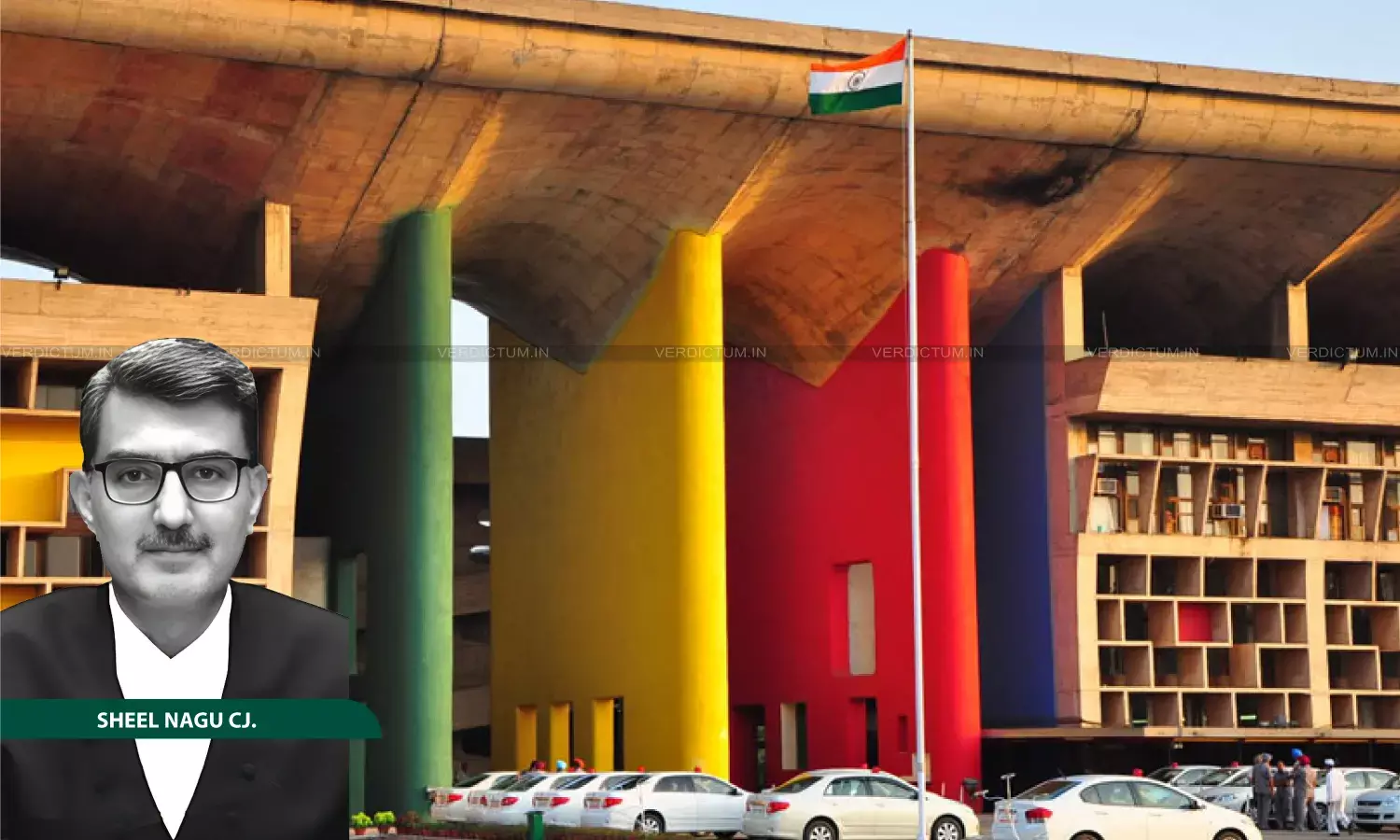Illegal Mining Serious Crime Despite Less Punishment Under Law: Punjab & Haryana High Court Denies Pre Arrest Bail To Accused, Says Humanity Has Suffered Enough
The Punjab & Haryana High Court was considering a Petition seeking anticipatory bail, apprehending arrest for offences under Section 303(2) of BNS and Section 21 of the Mines and Minerals (Development and Regulation) Act.

Chief Justice Sheel Nagu, Punjab & Haryana High Court
The Punjab & Haryana High Court has denied bail to a person accused of illegal mining, observing that it is a serious crime despite the lesser punishment prescribed under the statute.
The Court was considering a Petition seeking anticipatory bail, apprehending arrest of the Petitioner for offences punishable under Section 303(2) of the Bharatiya Nyaya Sanhita, 2023 and Section 21 of the Mines and Minerals (Development and Regulation) Act.
The Bench of Chief Justice Sheel Nagu observed, "In view of the above and the fact that humanity has suffered enough environmental damage especially to the river as well as to the environment at large, the offence of illegal mining in rivers needs to be taken in all seriousness despite less punishment prescribed under the said Act and therefore, this Court deems it appropriate not to interfere in the matter. Accordingly, the petition for grant of anticipatory bail to the petitioner stands dismissed."
The Petitioner was represented by Advocate Lakhwinder Singh Mann, while the Respondent was represented by Additional Advocate General Jastej Singh.
Facts of the Case
It was the Prosecution's case that a JCB machine indulging in illegal mining in river Satluj was intercepted by the Police. The driver of the said JCB machine fled away from the spot. The JCB was found to be registered in the name of the Petitioner.
Counsel for the Petitioner, by relying upon a resolution of the Gram Panchayat, submitted that the Petitioner had been given contract for filling mud at the water tank of the village. He disputed that the JCB machine was extracting sand from the road and contended that the same was present in the village on the road to commence earth work which was allotted to the Petitioner by way of resolution of the Gram Panchayat.
He also relied upon Section 41-A of the Code of Criminal Procedure (Section 35 of BNSS-2023) to contend that the reasons and grounds of arrest have not yet been communicated to the Petitioner.
Reasoning By Court
The Court, at the outset, noted that the grounds and reasons of arrest are to be communicated to the person at the time of arrest whereas the Petitioner merely apprehends arrest and has not yet been arrested.
It refused to apply the law laid down in the verdict of the Supreme Court in Arnesh Kumar vs. State of Bihar (2014) since the same has been doubted as regards it’s application to the practicalities of life, by the Apex Court in the matter of Mihir Rajesh Shah vs. State of Maharashtra and another SLP (Crl.) No. 17132 of 2024, which has been heard and reserved for passing orders.
Noting that the presence of JCB on the spot is a matter of evidence to be considered at the Trial stage, the Court went on to cast serious doubt about the authenticity and genuineness of the resolution of the Gram Panchayat.
".....since the date of the said resolution is the same as the date of incident and the possibility of the said document being manufactured cannot be ruled out. However, this Court does not comment upon the merits of the matter since the same are within the domain of the trial Court," the Court observed.
It stressed that illegal mining is a serious offence despite there being less punishment in law. The Petition was accordingly dismissed.
Cause Title: Gurdial Singh Kachure vs. State of Punjab (2025:PHHC:076092)
Click here to read/ download Order

